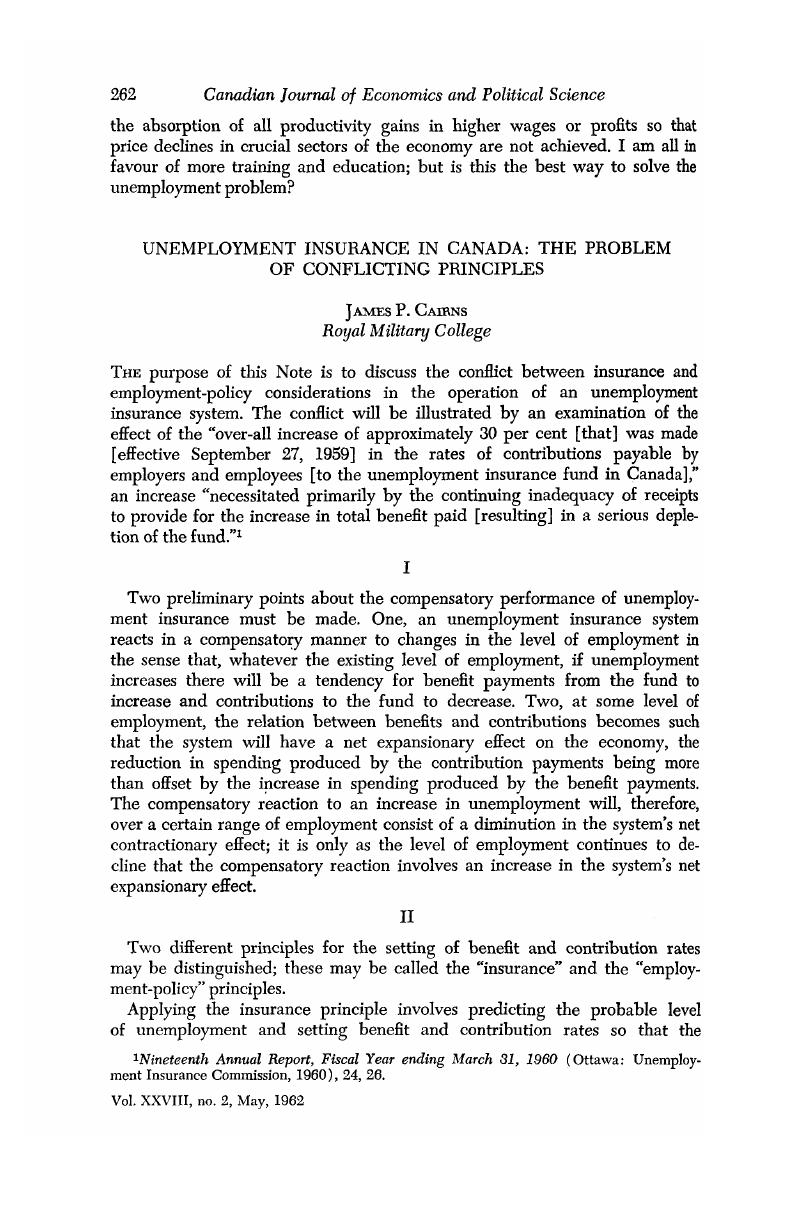No CrossRef data available.
Published online by Cambridge University Press: 07 November 2014

1 Nineteenth Annual Report, Fiscal Year ending March 31, 1960 (Ottawa: Unemployment Insurance Commission, 1960), 24, 26.Google Scholar
2 See Special Report of the Unemployment Insurance Advisory Committee resulting from meeting, October 27, 1960, in the Labour Gazette, Feb., 1961. “The increase in contribution rates [on Sept. 27, 1959] was based on the Actuary's report and the theory upon which the actuarial calculations were made was that the level of employment for the five years 1959 to 1963 inclusive would equal the average level of the rive years ended March 31, 1958. This theory up to the present has proved to be far too optimistic [and hence the continuing post-contribution-rate-increase decline in the assets of the fund].” (125)
3 Apart from any other revenues—government contribution, interest on assets—that may be forthcoming.
4 It may be pointed out that the Unemployment Insurance Act makes it clear that the main concern of the Unemployment Insurance Advisory Committee must be the “financial condition of the fund” and its ability to “discharge its liabilities.” See Unemployment Insurance Act, Office Consolidation with Notes and Index, issued by Unemployment Insurance Commission, Sept., 1959, especially para. 89.
5 It should be stressed that the Unemployment Insurance Advisory Committee has consistently urged other methods of replenishing the fund. The government was urged to make good the drain on the fund occasioned by the increase in the seasonal benefit period and the extension of coverage to fishermen. In addition, the Committee has proposed that the government contribution be increased from one-fifth to one-half the total contribution by employers and employees. See the Labour Gazette, 02, 1961, 125.Google Scholar
6 In June, 1961, however, an unemployment rate of 5.6 per cent was associated with an excess of benefits over contributions of $4 million.